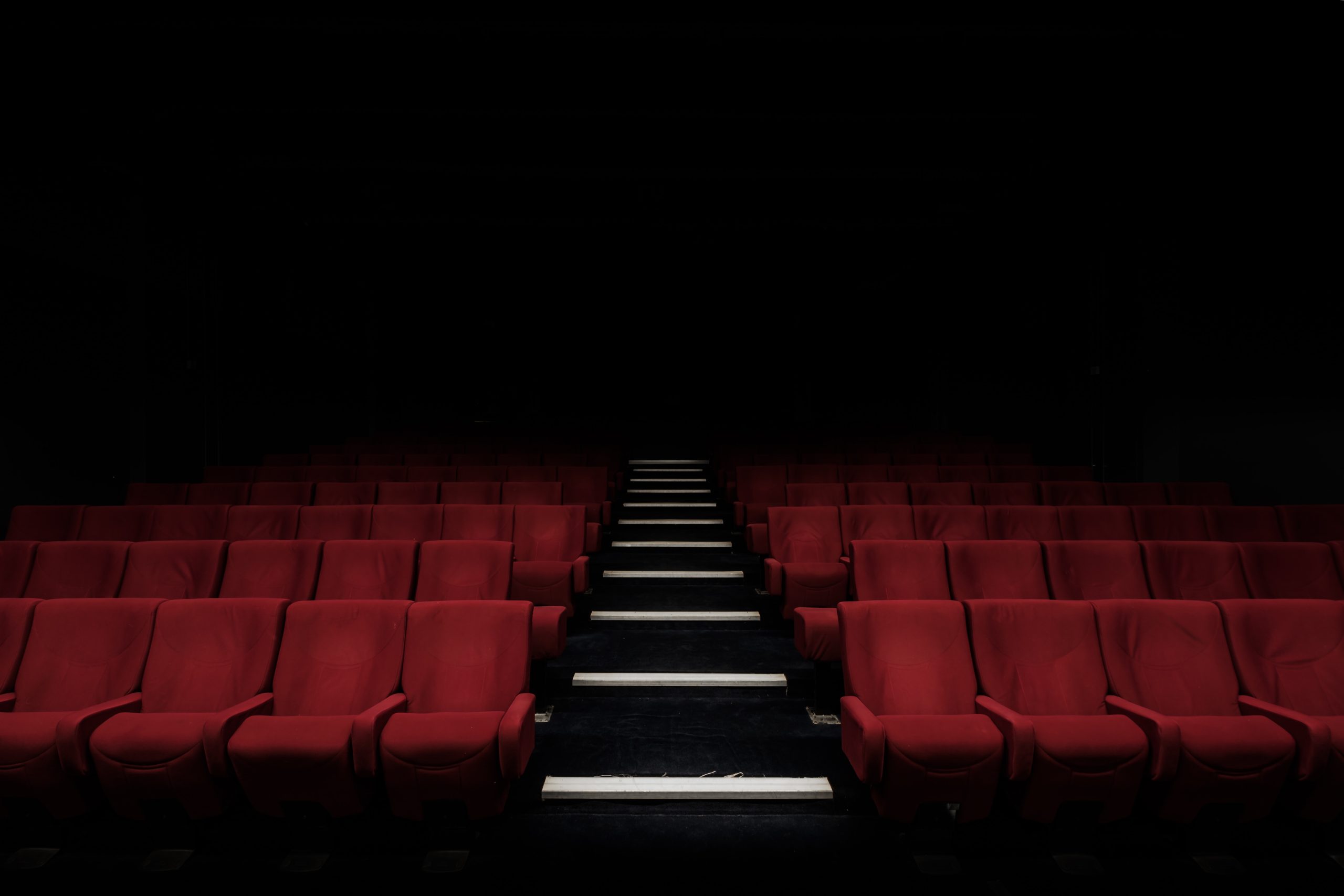“Why did you blurb that book?” a friend who leads a major Jewish organization recently asked. He, predictably, disliked the hard-hitting anthology Betrayal: The Failure of American Jewish Leadership, edited by Charles Jacobs and Avi Goldwasser. The introduction, 21 essays, and an epilogue launch 23 hit pieces targeting most establishment organizations, and the new o-so-politically-correct, self-destructive worldview hypnotizing many American Jews. True, these Jeremiads don’t mince words and don’t acknowledge many of the good leaders or their good works. But the authors demonstrate that today’s challenges are too great for our usual self-congratulatory backslapping. We need the book’s honesty — even when brutal.
Still, I was happy to reread the book – and reconsider my blurb. Especially after October 7, I wondered if the book became out-of-date. I could have been reading “Hamas: Pragmatic not Apocalyptic,” by Benjamin Netanyahu – co-authored by every world leader, most American Jewish leaders, and America’s foreign policy establishment. I could have been reading “Jew-Hating at Harvard: Gone with the WASPs,” by Claudine Gay. Or, I could have been reading, “Israel: No Longer Important to American Jews,” by Peter Beinart and Yahya Sinwar.
Instead, although some chapters need updating, the problems of anti-Semitism, alienation, and anomie the book addresses have only escalated, making it easy to stand by my every word. I wrote: “If you want to believe that all is well in the Jewish world… don’t read this book. If you want to keep your faith in the Jewish legacy organizations and establishment leaders… don’t read this book. If you want to bury your head in the sand and decide that America – and especially Woke America which most Jews worship – is not changing and turning anti-Jewish and anti-Zionist, don’t read this book. If, however, you think it’s time for the American Jewish community, its organizations, and its leadership, to have an honest, challenging, vigorous debate about where we are going – and what mistakes we have made – then, indeed, read this important, illuminating, sometimes depressing, but ultimately inspiring book.”
As with any essay collection, it’s easy to find nits to pick. Some essays are stronger than others. Some overstate. And post-October 7, it would be nice to add an epilogue honoring the heroic efforts of those supposedly hidebound, anachronistic legacy organizations that embraced Israel enthusiastically, mobilized the American Jewish community impressively, lobbied the White House effectively, and raised over one billion dollars for Israel in two months.
More important, however, is to assess the argument holistically. Four historical processes seem to be menacing American Jews. Using my words not the authors’, American Jews keep being Americanized, Osloified, Aparth-lied, and Politically Corrected. Together, these trends hollow out Jewish identity, while sapping pride and power from American Jews, not just their leaders.
More than 140 years after the great Eastern European Jewish immigration began, young Jews are deeply American. This red-white-and-blue immersion is America’s great gift to every immigrant – and its great threat to their heritage and, often, their souls.
When I teach about American Jewish identity, I reverse currents. Rather than telling the story traditionally, explaining how Jews became Americanized, I tell the story of mostly third- and fourth-generation Americans who incorporate some Jewish elements into their identities too.
Moreover, as an American historian, even as American Jewish solidarity wanes, I note how much more Jewish many American Jews are compared to their Italian, Irish and German peers. So, yes, American Jewish intermarriage rates keeps skyrocketing. But intermarriage is ignored or celebrated in most comparable communities. Also, many non-Jews now become Jewish or Jew-positive by being raised as “nothings” and marrying into “somethings,” namely, American Jews more attached to their heritage than their peers.
As American Jews’ connection, fluency and communalism fade, the assault on Zionism hurts their identities too. By 1967, Zionism became American Jewry’s secular super-glue. Supporting Israel helped increasingly-assimilated American Jews “do Jewish” and delight in the greatest Jewish communal adventure today, building the State of Israel. Even the ongoing traumas of wars, terrorist attacks and international denunciations initially bonded many American Jews to Israel.
In “the Two-State Solution and American Jewish Survival,” Caroline Glick shows how, since the 1990s, the Oslo Peace Process’s two-state solutionism has been triply problematic. First, treating it “axiomatically” as “the only solution” blocks debate, cancelling any doubters as “anti-Peace.” Second, it makes too many American Jews what I call “Blame Israel Firsters,” assuming that if only Israel gave enough to the Palestinians, peace would result. Finally, even worse, the two-state paradigm buys the Palestinian narrative, whole-hog. Caricaturing Israel as the perennial aggressor, American Jews’ growing occupation preoccupation negates Jews’ indigeneity, ignoring Jewish ties to the once-Biblically Jewish lands Jordan seized illegitimately in 1949.
Since October 7, some American Jews have realized that following Oslo, the territories became flooded with weapons, just as since the 2005 disengagement, Gaza became a launching pad for evil. But listen closely, not just to Democrats but to many American Jews: you can still hear the siren song of the two-state solution, of “if only Israel gave up the territories, then there’d be peace,” seducing so many. I get it. Who wants to be involved in a conflict with enemies who just want you dead and view any concession as an opportunity to rearm not reconcile?
Beyond this Osloification of the American Jewish conversation is the Aparth-lying about Israel. Since the Soviet-Palestinian Zionism-is-racism libel spread during the 1970s, more and more liberals deem Israel “racist.” In 2001, when the World Conference against Racism in Durban, South Africa, scapegoated Israel instead of critiquing bigotry globally, this new blood libel re-entered the international bloodstream with a vengeance. This Big Black-and-White Lie has fueled the offensive against Zionism on campuses and elsewhere, with Israel falsely accused of racism, and the national conflict between Israelis and Palestinians racialized, South-Africanized, Nazified. Many American Jews who ignored the problem pre-October 7, have suddenly discovered it.
Finally, many American Jewish rabbis, teachers and communal leaders have accepted the new Politically Correct Progressive package viewing America as systemically racist, whites as privileged, and Jews as white. Beyond feeling shamed, many liberals Jews have participated in a mass-virtue signal – or blue-and-white-wash – reducing Judaism to one big Tikkun Olam campaign that keeps echoing the Democratic Party agenda of the moment. Even many Jewish day schools, Naya Lekht warns, are “woke in content, Jewish in form,” raising new generations of apologetic Jews misreading Judaism as modern liberalism.
Together, these exaggerations form a cluster bomb blasting the American Jewish soul, distorting the Jewish religion, cheapening Jewish values, eviscerating Jewish peoplehood, undermining Jewish solidarity, and besmirching the great American Jewish success story. Rather than taking pride in coming to the New World penniless and oppressed, then prospering thanks to our sweat and our smarts, Jews are supposed to feel ashamed, dismissing every American Jewish high-achiever for clawing ahead on the backs of blacks and other perpetually-oppressed minorities. Even now, after the three Ivy League Presidents embarrassed themselves in Congress and proved how numb Woke people can be to Jewish pain, too many American Jews remain addicted to this ideology, which promises “social justice” to all, but actually only cares about some.
These four trends proved particularly toxic in back-to-back miserable Mays which haunt this volume. In May, 2020, the Minneapolis police officers who murdered George Floyd, unleashed a “racial reckoning” that mainstreamed this talk of Jews as white and privileged and unfairly exploiting America’s minorities – despite our own small numbers – and troubles. Then, in May, 2021, the surge in anti-Zionist Jew-hatred, as Hamas bombed Israel, brought out more leading Un-Jews, Jewish leaders trying to undo the Zionist consensus that has been at the heart of American Jewish identity since Israel’s establishment in 1948.
Still, in May, 2021, most American Jews defended Israel – as did most American Jewish leaders. Since October 7, the community showed even more unity, more pride, more focus, and a deep connection to Israel. Still, what is emerging is a new American Jewish elite: some rabbis, some communal leaders, who get more attention than they deserve – and while far to the community’s left, keep dragging it there. Those extremists who remained un-Jews after October 7, continued knocking Israel down – often cowering behind masks, so they could still earn their salaries from the American Jewish organizations that pay them. If I were writing the book today, instead of attacking The Failure of American Jewish Leadership my title would proclaim: Beware this next Generation of Leading American Un-Jews and Tikkun Alarmists.
While the challenges are serious – and the underlying trends daunting – we must not despair. Even those who disagree should read this book, to start the deep, reflective, post-October 7 rethink we need – once the war ends.
Ultimately, even while exposing the American Jewish obsession with “being liked by the Gentiles,” even while repudiating “spinelessness,” “influence peddling,” “resume padding,” and “denouncing Israel” as “a form of Jewish virtue-signaling, the shameless flashing of moral narcissism,” the Jewish Journal’s own Thane Rosenbaum generates optimism. Calling for “moral courage,” Rosenbaum seeks “today’s Maccabees,” challenging us to avoid wallowing in self-abnegation. Indeed, months after the book’s publication, American Jewish Maccabees mobilized to help Israelis’ mass Maccabean counterattack save Israel.
So, let’s take the leap of hope Zionism and Judah-the-Maccabee taught us to take – trusting that tomorrow will be better than today – despite the trends – and arguing vigorously about where we are going while rolling up our sleeves to make things better.
Professor Gil Troy, a Senior Fellow in Zionist Thought at the JPPI, the Jewish People Policy Institute, is an American presidential historian and the editor of the new three-volume set, “Theodor Herzl: Zionist Writings,” the inaugural publication of The Library of the Jewish People (www.theljp.org).








